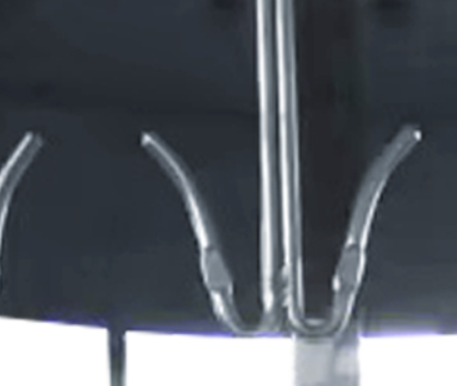Layer cage for poultry farm to ensure efficient egg production and bird welfare.
Jul . 10, 2024 08:00 Back to list
Layer cage for poultry farm to ensure efficient egg production and bird welfare.
Poultry Farm Layer Cage Ensuring the Health and Productivity of Layers
Poultry farming is an essential sector of agriculture that plays a significant role in providing protein-rich food to a growing population. One crucial aspect of poultry farming is the housing and management of laying hens, also known as layers. To maximize the health and productivity of layers, poultry farmers often use layer cages, a type of housing system specially designed for egg-laying chickens.
Layer cages provide a controlled environment for layers, ensuring their welfare and optimizing egg production. These cages are typically made of galvanized steel wire mesh and are designed to accommodate a specific number of hens per cage. The cages are often stacked in multiple tiers to maximize space utilization and facilitate efficient management practices.
One of the key advantages of using layer cages is that they help to prevent the spread of diseases among the flock. The cages provide a barrier between individual birds, reducing the risk of direct contact and minimizing the transmission of pathogens. This is crucial for maintaining the health and biosecurity of the flock, as diseases can have devastating effects on egg production and overall profitability.
Furthermore, layer cages help to protect the eggs from contamination. The cages are equipped with sloped wire floors that allow the eggs to roll out of reach of the hens, preventing them from being soiled or broken

poultry farm layer cage. This not only improves the quality of the eggs but also reduces the labor required for egg collection and cleaning. In addition to health and hygiene benefits, layer cages also contribute to the efficiency and productivity of the flock. The cages are typically equipped with feeders and waterers that provide a consistent supply of feed and water to the hens. This ensures that the layers receive a balanced diet and remain adequately hydrated, which is essential for optimal egg production. Moreover, the design of layer cages promotes good air circulation and ventilation, creating a comfortable environment for the hens. Proper ventilation helps to prevent heat stress and respiratory problems, both of which can negatively impact egg production. By maintaining a healthy and stress-free environment, layer cages contribute to the overall well-being of the flock and promote consistent egg laying. In conclusion, poultry farm layer cages play a crucial role in ensuring the health and productivity of laying hens. By providing a controlled environment that minimizes the risk of disease, contamination, and stress, layer cages help to maximize egg production and profitability for poultry farmers. Investing in quality layer cages and implementing proper management practices is essential for the success of a layer poultry farm.

poultry farm layer cage. This not only improves the quality of the eggs but also reduces the labor required for egg collection and cleaning. In addition to health and hygiene benefits, layer cages also contribute to the efficiency and productivity of the flock. The cages are typically equipped with feeders and waterers that provide a consistent supply of feed and water to the hens. This ensures that the layers receive a balanced diet and remain adequately hydrated, which is essential for optimal egg production. Moreover, the design of layer cages promotes good air circulation and ventilation, creating a comfortable environment for the hens. Proper ventilation helps to prevent heat stress and respiratory problems, both of which can negatively impact egg production. By maintaining a healthy and stress-free environment, layer cages contribute to the overall well-being of the flock and promote consistent egg laying. In conclusion, poultry farm layer cages play a crucial role in ensuring the health and productivity of laying hens. By providing a controlled environment that minimizes the risk of disease, contamination, and stress, layer cages help to maximize egg production and profitability for poultry farmers. Investing in quality layer cages and implementing proper management practices is essential for the success of a layer poultry farm.
Latest news
-
Automatic Feeding Line System-Pan Feeder Nipple Drinker|Anping County Yize Metal Products Co., Ltd.
NewsJul.29,2025
-
Hot Sale 24 & 18 Door Rabbit Cages - Premium Breeding Solutions
NewsJul.25,2025
-
Automatic Feeding Line System Pan Feeder Nipple Drinker - Anping County Yize Metal Products Co., Ltd.
NewsJul.21,2025
-
Automatic Feeding Line System Pan Feeder Nipple Drinker - Anping County Yize Metal Products Co., Ltd.
NewsJul.21,2025
-
Automatic Feeding Line System - Anping Yize | Precision & Nipple
NewsJul.21,2025
-
Automatic Feeding Line System - Anping Yize | Precision & Nipple
NewsJul.21,2025






